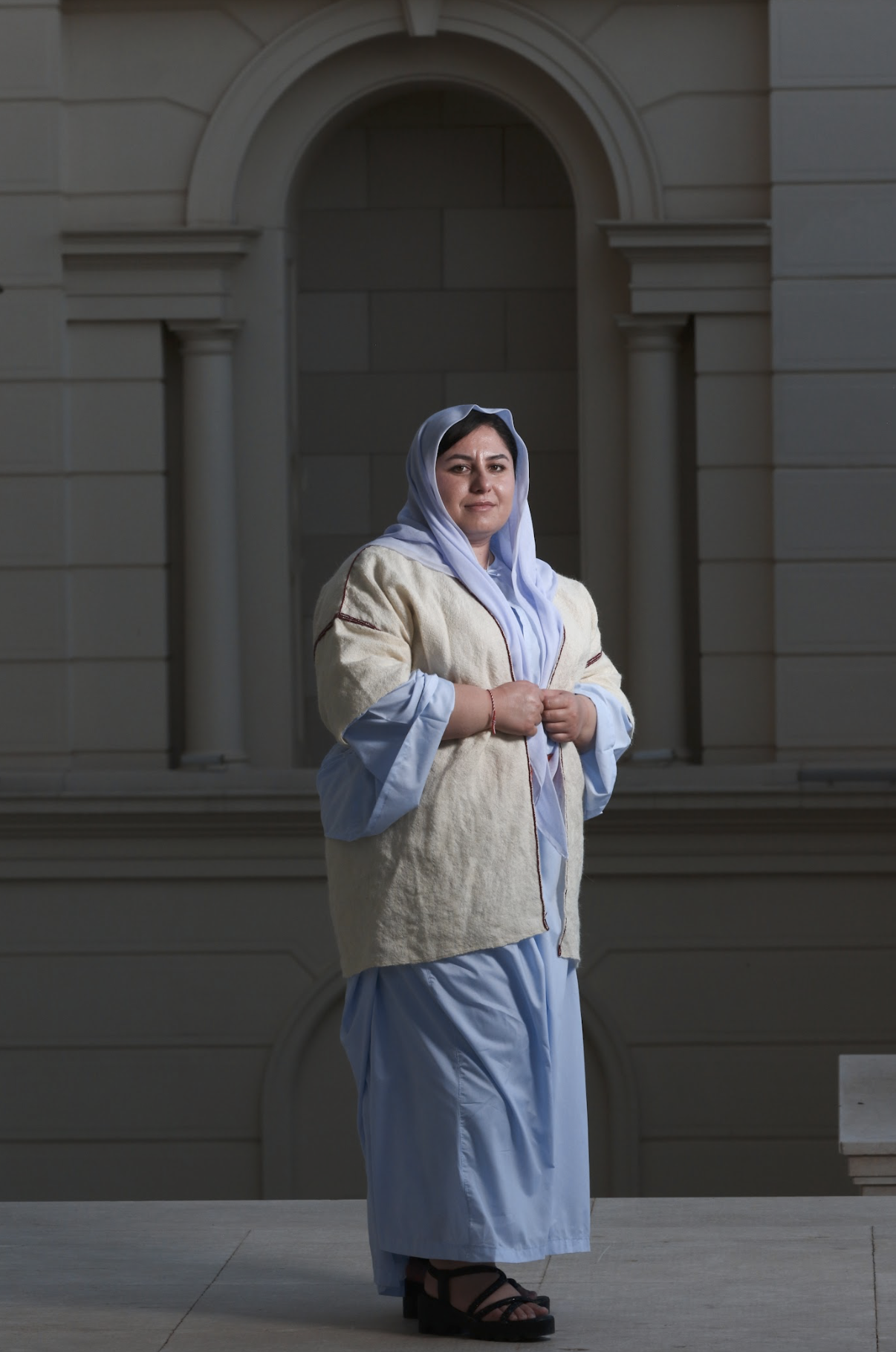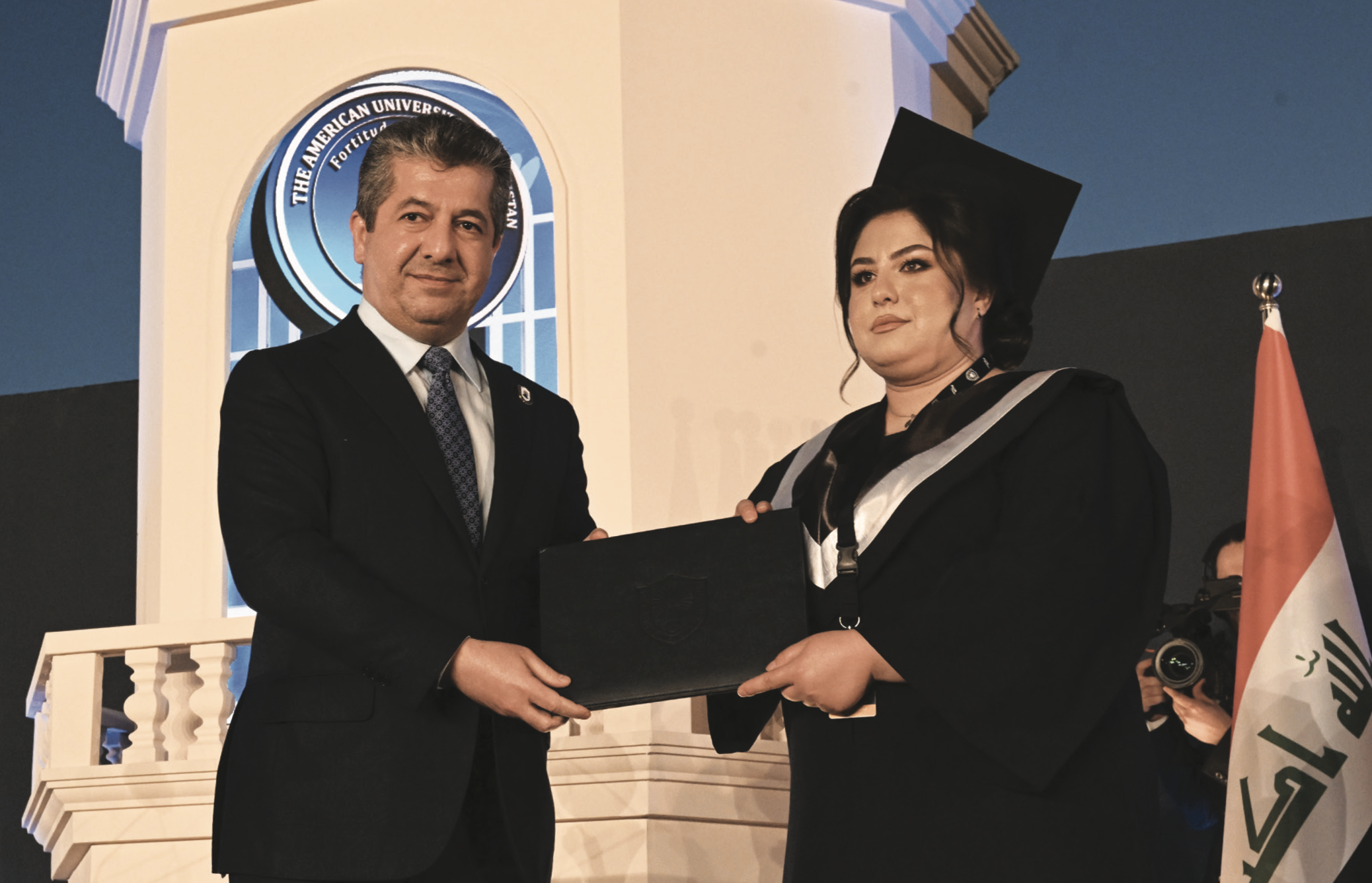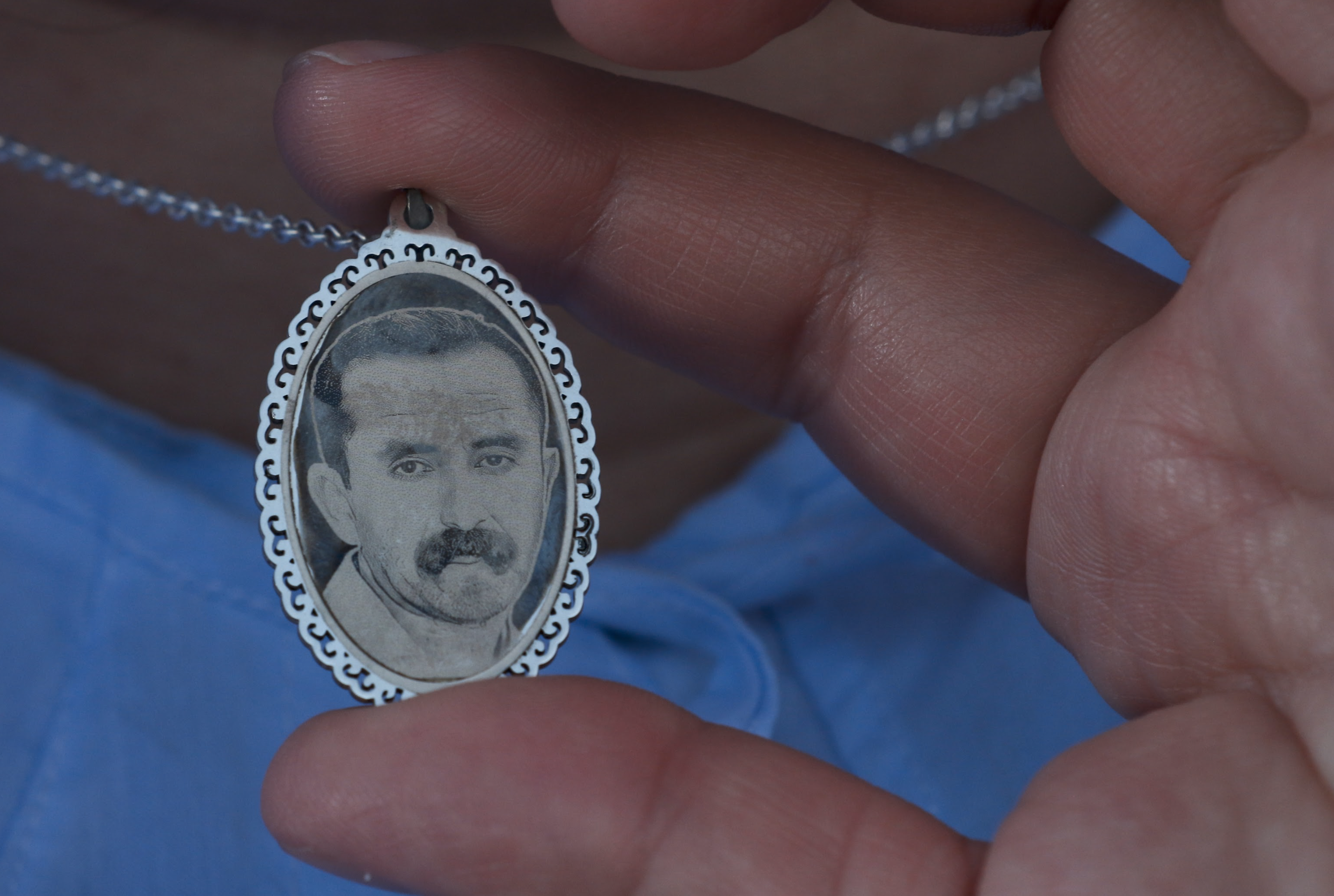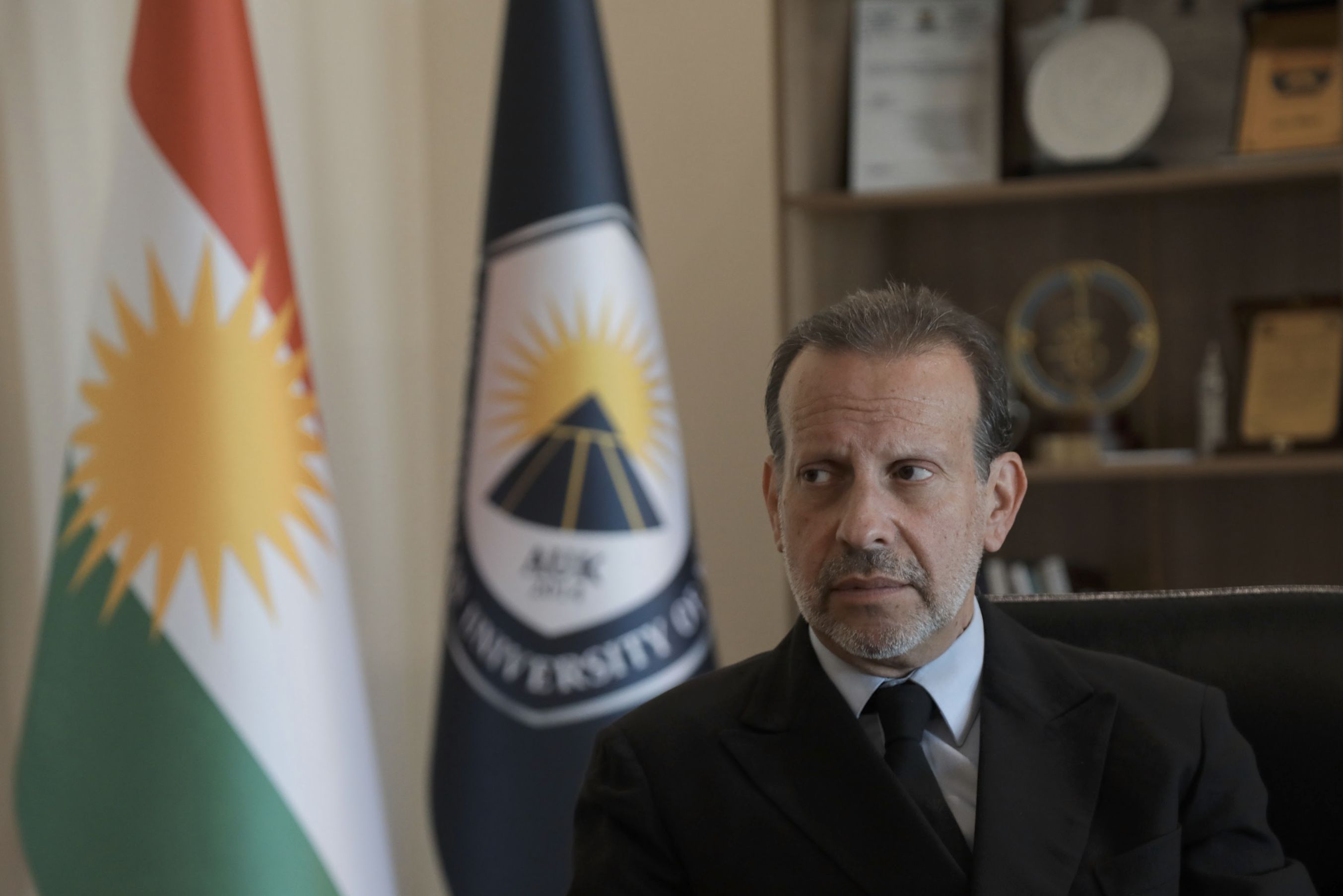Shireen Khero, a 30-year-old Yezidi survivor of the genocide perpetrated by ISIS, defied all odds to find a way forward. In June 2024, she graduated with a business management degree from the American University of Kurdistan (AUK) and was awarded the Honor of Resilience by Kurdistan Regional Government Prime Minister Masrour Barzani.
On graduation day, Khero felt immense happiness standing before hundreds of people, including her sister, brother, and friends. “I felt very proud,” she told Kurdistan Chronicle. “Finally, my dream came true with an extra bonus: the Honor of Resilience from the Prime Minister, which I did not expect.”
Khero was in her last year of high school, preparing for final exams, when ISIS attacked her village, Hardan, in the Sinjar District of Nineveh Governorate. Captured with her family, she made a daring escape in February 2017 to Duhok.

Her life took an unexpected turn when she was accepted into the business management program at AUK. This opportunity marked a fresh start for her. Both the faculty and her fellow students welcomed her warmly, offering the support and inspiration she needed to continue her education.
“During my captivity, I was judged, cursed, and tortured,” said Khero. “But at AUK, everyone was nice to me. They made me feel safe.”
Since graduation, Shireen’s phone has not stopped ringing. Friends and family call to congratulate her, and other members of the Yezidi community have asked about scholarships and studying at AUK.
“Khero truly embodies resilience,” said Khidher Domle, a friend of Khero who attended her graduation. “There are three reasons why she deserved the Honor of Resilience. First, after escaping ISIS, Shireen didn’t let the trauma define her. She found the strength to continue her education. Second, she tirelessly used all her connections to rescue her sister and family, who were also captured by ISIS. Third, Shireen bravely raised her voice. She traveled to cities like Baghdad to speak out about the crimes committed by ISIS and advocate for the rights and protection of the Yezidis.”

“Every university in the Kurdistan Region and Iraq has a duty to support Yezidi women survivors,” Domle added. “I urge all institutions, including private universities, to grant scholarships to these women. Education empowers them to become symbols of resilience for others and build a brighter future.”
In 2014, the Yezidi people in Iraq faced a horrific genocide perpetrated by ISIS. Thousands of Yezidi men were massacred for refusing to convert to Islam, while women and girls were abducted and enslaved. This brutal campaign forced hundreds of thousands to flee their homes.
In 2022, a mass grave containing 60 people, including Khero’s father, was discovered in Hardan. After two years of digging and DNA testing, Khero received her father’s remains last January and buried him in the same place.
“I am working to turn the location of the mass grave into a cemetery as a testament to the Yezidi genocide,” she said.
Khero has joined the Netherlands-based organization SEMA, the Global Network of Victims and Survivors of Wartime Sexual Violence. In addition to pursuing a career in business management, she has decided to dedicate her life to advocating for the rights and protection of the Yezidi community.

Khero does not like the label of “victim,” either for herself or other Yezidi women survivors. “Life is not easy, and it’s true that I went through a bad experience,” she said. “However, I want people to see me as Shireen, not as a victim. I’m not comfortable when people identify us only as victims.”
AUK President Randall Rhodes believes it is crucial for vulnerable populations to have access to higher education. He joined AUK four years ago from the American University of Armenia, where he served as provost.
“Education is the pathway to success in life,” President Rhodes believes. “Without education, you’re going to continue the cycles of poverty and victimization.”
Rhodes holds a Ph.D. in art history from the University of Chicago.
He explained that when AUK negotiates funding with the U.S. Department of State to establish scholarships, they try to identify those most in need and those who would benefit most – in short, the candidates who are most motivated to take advantage of education to break the cycles of violence that have gripped the Middle East for so many years.

AUK President Randall Rhodes
“For Khero, it’s very important that she moves forward and believes there is a next chapter, more to come in her life,” Rhodes added. “The greatest mission on Earth is to help others, to make sure they don’t suffer, they don’t become victims, that the chains of victimization are broken.”
According to AUK, over 72% of its students are on scholarships. The university is committed to providing access to an American-style education for the people of the Kurdistan Region, regardless of ethnicity, religion, family name, or ability to pay.
Rhodes would like to get scholarship support for Kurds living in Europe, the United States, or Canada to return to Kurdistan and study at AUK.
“By studying at AUK, members of the Kurdish diaspora will be reconnected with their homeland and won’t lose their language or culture,” Rhodes said.
Rhodes concluded by proposing that, if every Kurd living in Germany, Sweden, the Netherlands, or the United States were to sponsor one person to study in Kurdistan, it could dramatically change the global perception of the Kurdish people. This, he believes, could be a path toward ending persecution and preventing future genocides against Kurdish people, as people in all these countries will come to understand the realities of the past and present in Kurdistan.
Qassim Khidhir has 15 years of experience in journalism and media development in Iraq. He has contributed to both local and international media outlets.

